
The consultant neurologist and senior lecturer at St. Georges Hospital in London, provided commentary on the diagnosis, management, and future research around neuropsychiatric symptoms of Parkinson disease.

The consultant neurologist and senior lecturer at St. Georges Hospital in London, provided commentary on the diagnosis, management, and future research around neuropsychiatric symptoms of Parkinson disease.

A recent survey showed that patients with Parkinson disease quickly adapted to using continuous subcutaneous apomorphine infusion therapy, with high amount of recommending the device to others.

Amantadine extended-release capsules, approved for levodopa-related dyskinesia and OFF episodes in Parkinson disease, offer high amantadine concentrations that peak in the time of first morning levodopa dose.
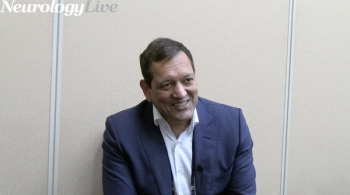
The chief medical officer and chief development officer at BlueRock Therapeutics provided perspective on newly presented data investigating a cell therapy for patients with Parkinson disease. [WATCH TIME: 4 minutes]
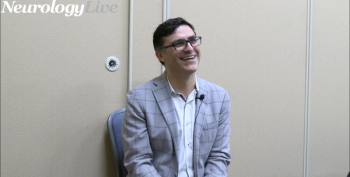
The president and chief executive officer at Praxis Precision Medicine provided clinical insight on the promising build of ulixacaltamide, an investigational, selective agent in development for essential tremor. [WATCH TIME: 3 minutes]

ELATE, a multicenter, randomized, double-blind, placebo-controlled trial, aims to address the limitations of current oral therapies by exploring a targeted, localized treatment option.
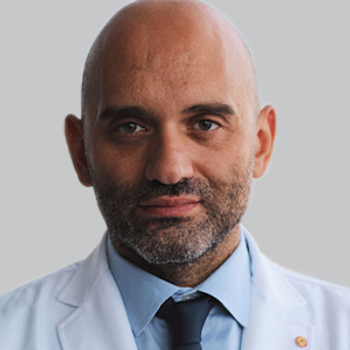
In a post hoc analysis of the COSMOS study, 24-hour LCIG infusion led to a reduction in nocturnal and morning akinesia, though many patients continued to rely on nighttime add-on medications.
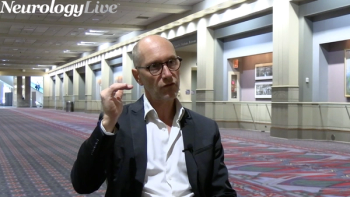
The neuropharmacologist at the University of Lille, in France, provided commentary on promising results from the phase 1/2 DIVE-I trial assessing the safety and efficacy of a device-assisted therapy in Parkinson disease. [WATCH TIME: 6 minutes]

While participants responded positively to nutritional guidance and the Mediterranean diet, they expressed negative views on the ketogenic diet due to its restrictive nature, social impracticality, and gastrointestinal side effects of MCT oil.

Patients reported increased good ON time and improved confidence in daily activities while experiencing a lower treatment burden compared to their previous medication regimens.

Lu AF84222 was considered well tolerated, with greater treatment effects observed in a subgroup of patients with less impaired multiple system atrophy.

Path to Prevention is a platform, phase 2 trial that will investigate the safety and efficacy of investigational interventions in patients neuronal α-synuclein disease stage 2B.

Findings from a new study presented at MDS 2024 suggest that variations in cholinergic denervation patterns may hold promise for differentiating Parkinson disease and progressive supranuclear palsy with parkinsonism.

Despite showing no differences vs placebo on the primary end point of gait parameters, TAK-071-treated patients demonstrated significant improvements in global cognition score.
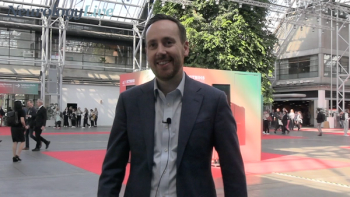
The consultant neurologist at Queen's Square MS Center in London gave his clinical viewpoint on the newest revision of the McDonald criteria for diagnosing patients with multiple sclerosis. [WATCH TIME: 3 minutes]
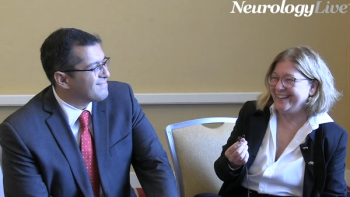
A pair of neurologists from the University of California, Irvine, detailed some of the training and career focuses of large federal agencies in effort to address the shortage of neurologists. [WATCH TIME: 4 minutes]

The chief research officer of the Muscular Dystrophy Association talked about what is to be expected at the 2025 MDA Conference, held March 16-19, in Dallas, Texas. [WATCH TIME: 5 minutes]
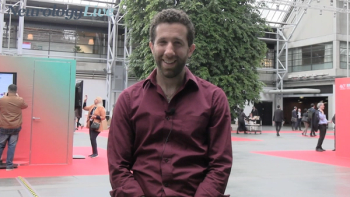
The postdoctoral researcher at Amsterdam University Medical Center talked about the DAAE score 2.0 which offers an improved, validated clinical tool to predict the risk of transitioning to secondary progressive multiple sclerosis. [WATCH TIME: 5 minutes]

The consultant neurologist at Queen's Square MS Center in London discussed the shift in the updates to the McDonald criteria for multiple sclerosis presented at ECTRIMS 2024.

Recruitment for the OCTOPUS trial, which explores alpha-lipoic acid and metformin in progressive multiple sclerosis (MS), is progressing well with nearly half of participants in stage 1 already randomized.
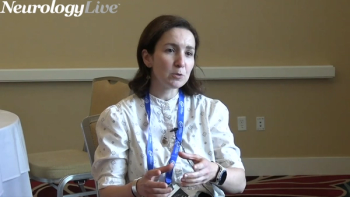
The principal investigator at Seattle Children’s Research Institute described some of the ongoing questions that remain with developing therapeutics that target mTOR signaling pathway in pediatric epilepsy conditions. [WATCH TIME: 3 minutes]

In the ULTIMATE study subgroup, ublituximab consistently lowered disease activity in MS patients, suggesting the MSDA test may effectively assess therapeutic efficacy.

A new study presented at ECTRIMS 2024 revealed that 80% of patients with relapsing multiple sclerosis had an estimated no evidence of disease activity rate at both 3 and 4 years when discontinuing cladribine tablets.

Results showed that the immune response observed in patients with multiple sclerosis was specifically modified by treatments interfering with Epstein-Barr virus hosts cells or activated lymphocytes.

In the original phase 3 studies, treatment with ozanimod resulted in significant reductions in clinical relapses and lesion counts on MRI as well as slowed brain volume loss relative to intramuscular interferon-β-1a.

Towards the end of ofatumumab dosing, administered monthly via subcutaneous injection, patients noted issues like fatigue, cognitive impairment, and gait difficulties.

A phase 3 trial revealed that simvastatin, while safe, did not significantly slow disability progression in patients with non-active secondary progressive MS.

In a phase 3 study, tolebrutinib demonstrated a statistically significant delay in time to onset of confirmed disability progression in patients living with non-relapsing secondary progressive multiple sclerosis.

The randomized phase 3 trial will test the hypothesis that the initiation of azathioprine after a first attack of MOGAD could prevent further relapse and disability accrual.
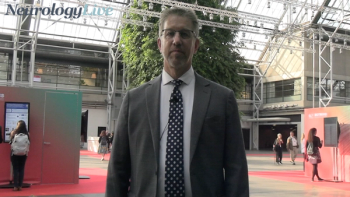
The staff neurologist at the Mellen Center for Multiple Sclerosis at Cleveland Clinic talked about a promising therapy that slows the progression of disability in non-relapsing secondary progressive multiple sclerosis. [WATCH TIME: 2 minutes]